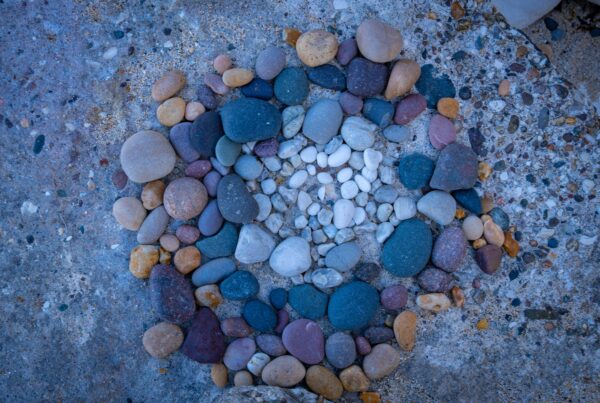Recently, I attended the UCSF Sustainable Caregivers Summit, where caregivers, healthcare professionals, and researchers came together to talk honestly about what it means to care for someone with a rare disease.
One story that has stayed with me came from a speaker who shared her experience of being both a physician and the mother of a child with Hunter Syndrome. Despite her medical training, she spoke of sleepless nights, endless coordination, and the heavy emotional toll. Her story underscored something I’ve been thinking about ever since: behind every patient is someone whose invisible work makes survival possible.
They are the unseen backbone of rare disease care.
The Hidden Scope of Rare Disease Care
Stories like the ones I heard are far from unique. To truly understand the scope of rare disease care, it helps to take a step back. Of the more than 10,000 identified rare diseases, only about 5% have an FDA-approved treatment.
Behind every patient is at least one caregiver, but often more. Collectively, this represents millions of unpaid caregivers, providing labor valued at more than $600 billion annually in the U.S. alone. Behind every statistic is a family doing their best, often with little recognition.
Caregiving: The Job with the Infinite Job Description
Caregivers are not “helpers” on the sidelines. They are the very foundation of care. Many had thriving professional lives before diagnosis changed everything. They didn’t plan for it, but they now find themselves wearing many hats: nurse, case manager, insurance navigator, researcher, advocate.
In rare diseases, especially, caregivers often must become experts in conditions so rare that few physicians have ever treated them. The weight of these roles would be overwhelming for any professional team. For caregivers, it is daily life.
The Heavy Cost of Love
This invisible labor comes with a cost. Caregivers live with chronic stress, exhaustion, and in many cases, depression or grief. They give up careers and financial security. Families drain savings. Marriages are strained. Siblings can feel overlooked. Even grandparents and extended relatives carry invisible burdens of their own.
The rare disease ecosystem runs on caregiver sacrifice. And while it is given out of love, it comes at a steep human price.
Why the System Depends on Caregivers
This isn’t just a family issue. When caregivers are pushed to the brink, patients suffer — medications are missed, appointments are skipped, adherence falters. The unpaid labor of caregivers in the U.S. is valued at over $600 billion annually, yet it is rarely accounted for in healthcare planning.
For healthcare providers, researchers, and industry leaders, the message is clear: caregivers are not optional extras. They are the critical bridge between treatment plans and real-world outcomes. To overlook them is not just unkind; it’s shortsighted.
Building a Safety Net for Caregivers
The good news is that we know what makes a difference. It begins at diagnosis. Families consistently say that how a diagnosis is delivered shapes the experience for years to come. Clear, compassionate communication from healthcare providers is just as important as the medical facts themselves.
Caregivers also need access to mental health support. Too often, counseling and psychological services are offered only to patients, leaving caregivers to carry their own burdens silently. Giving caregivers a space to process grief, anger, and fatigue can prevent years of accumulated distress.
Connection is another powerful remedy. Peer-to-peer networks (in-person or online) provide something no professional can: the validation that comes from someone who has walked the same path. For caregivers who feel isolated, these communities can be a lifeline.
Practical supports matter as well. Respite care, workplace flexibility, and financial assistance can transform the daily grind of caregiving from something barely survivable into something sustainable. And perhaps most importantly, caregivers need recognition. When healthcare providers treat them as partners rather than background figures, outcomes improve for both patients and their families.
Recognizing the Backbone of Rare Care
Caregivers are the backbone of rare disease care. They deserve recognition, support, and a seat at the table when decisions about care, research, and policy are made.
Behind every rare disease patient is a caregiver whose invisible work sustains life, dignity, and hope. It’s time we start seeing them.
Resources for Caregivers
To every caregiver reading this: your strength, love, and resilience are genuinely appreciated. You are not alone. Your sacrifice has not gone unnoticed. And your care is deeply valued. There are organizations and programs dedicated to supporting you emotionally, mentally, financially, and with reliable information. Here are some trusted places to start:
Emotional & Mental Health Support
- We are Brave Together (https://www.wearebravetogether.org/): Caregiver support network offering support groups, retreats, connection circles and more.
- Caregiver Action Network (https://www.caregiveraction.org/): Education, peer support, wellness guidance.
- VA Caregiver Support Program (https://www.caregiver.va.gov): Counseling, peer groups, and respite resources for caregivers of veterans.
- Rare Caregivers via Give an Hour (https://giveanhour.org/rare/): Peer support and mental health tools.
- Raregivers (https://www.raregivers.global/): A global network that delivers emotional support to caregivers, patients, and professionals in rare, chronic, and complex disease communities
Financial, Respite & Practical Support
- NORD Caregiver Respite Program (https://rarediseases.org/patient-assistance-programs/caregiver-respite/): Financial assistance for respite care.
- Patient Advocate Foundation (https://www.patientadvocate.org/connect-with-services/financial-aid-funds): Grants to offset caregiving costs.
- National Family Caregiver Support Program (https://acl.gov/programs/support-caregivers/national-family-caregiver-support-program): Support groups, counseling, and respite care.
Rare Disease Information & Advocacy
- National Organization for Rare Disorders (https://rarediseases.org/): Hub for disease-specific groups, assistance programs, and education.
- EveryLife Foundation for Rare Diseases (https://everylifefoundation.org/): A nonprofit, nonpartisan organization dedicated to empowering the rare disease patient community to advocate for impactful, science-driven legislation and policy that advances the equitable development of and access to lifesaving diagnoses, treatments and cures.
- Global Genes (https://globalgenes.org/blog/rare-disease-caregiver-resources): Offers a “RARE Concierge” service for families.
- Rare Diseases Clinical Research Network (https://www.rarediseasesnetwork.org/resources/patients-families): Research, education, and connections.
- Disease-Specific Advocacy Groups: Many rare diseases have foundations or associations offering tailored resources, updates, and community support.




